PLANTEDA Chef's Show-Stopping Vegan Recipe
In her first solo cookbook, Chantelle Nicholson shows you how to cook delicious vegan dishes using seasonal and flavoursome plant-based ingredients. Growing up in New Zealand with a vegetable garden influenced her passion for fresh produce and, with her career as a professional chef, she was inspired to develop tasty, restaurant-quality vegan recipes, which feature on the menu at Tredwells, winner of AA’s London Restaurant of the Year. In Planted she offers an abundance of these dishes to make at home. Her recipes may look high-end, but they are easy to create in your kitchen and will impress even the most devoted meat- and cheese-lovers. This is not a book about veganism, it is about fantastic and tasty food, made without animal products. It celebrates produce, seasonality and food that tastes good!
Chantelle Nicholson
This Michelin starred chef has written a book about plant based bood. On the surface there’s nothing unusual about that, except that It isn’t a solely Vegetarian or Vegan book. She’s not vegan or a vegetarian herself. Her Idea was to create an all inclusive book. One where dietary requirements and restrictions could be seen to on an equal playing field.
Cahntellle was kind enough to speak with us from her restaurant Tredwell’s. About her new book.
BAF: Thanks for taking the time to talk.
Chantelle Nicholson: No problem.
BAF: Well, can I ask, first of all, are you a vegan or a vegetarian yourself?
Chantelle Nicholson: No.
BAF: No?
Chantelle Nicholson: No. I know, it’s always like,’ really’?
BAF: Yeah. Certainly, Tredwells is, by no means, a vegetarian or vegan restaurant?
Chantelle Nicholson: It’s not, but we do a lot of farm-based food.
BAF: You’re not a vegan chef. First of all, would you classify this book as vegetarian or vegan?
Chantelle Nicholson: It’s vegan, but I used the term plant-based. Because, obviously, to me, that refers to the food. Whereas, vegan is a lifestyle, where it’s all encompassing.
BAF: Fair enough. How did you come to write a book on the subject?
Chantelle Nicholson: Well, when we opened Tredwells five years ago, I wanted it to be, you know, really inclusive so that people go out, they didn’t have to ask a million questions to be able to get, if they had a dietary requirement or an allergen, or something like that. So, I wanted to include a lot of plant based options so that vegetarians, vegans, et cetera, they would be able to come out to enjoy a meal with their friends or family.
Of course, that’s getting more into it, really. I mean, obviously being from New Zealand, I was very privileged to have a load of produce around me growing up. We had a vegetable garden, that we go and pick our ingredients from to make our dinner, et cetera. So, vegetables have always been a huge part of what I do anyway.
Yeah, I was doing more of that. I found I really enjoyed the challenge of, like, cooking but limiting, I guess, what I could cook with. I found that really interesting, and also how to create based on 50% of what you had normally. It was actually more plant based food, and when I actually got the resources myself, most of the cookbooks I found weren’t particularly … They were home cooking, or they were from a health perspective, or they were bloggers that had turned into writing cookbooks. There wasn’t anything that was written by a chef, or something that had, I guess, a sense of professionalism to it, in some respects. So, I thought, well, I should write a resource that, then, other chefs, as well as people at home can use. That’s how it all came about.
BAF: Was it difficult to write? Maybe I should ask, was it a difficult transition to writing plant based recipes and concepts?
Chantelle Nicholson: Not necessarily. I mean, I have co-authored a number of books. Actually, recipe writing wasn’t that foreign. It was just bearing in mind, you know, what could be used and what couldn’t, and trying to have enough of a scope of dishes, as well. Not trying to overcompensate, make them too chef-y.
BAF: How was it developing? Was it hard to develop the recipes? Was it hard to figure these things out?
Chantelle Nicholson: I mean, there was some things that took a lot longer than others, in the development stage of it. I guess, when you try and recreate, that’s when it becomes a little bit challenging. So, I wanted to make a brioche, and that took a while to actually get that same rich taste to it.
One of the challenges with plant based food is obviously to get the fat content, that you’ve got the mouth feel, et cetera. You’re quite limited, because you don’t have the dairy. One of the biggest challenges to make sure that it doesn’t taste like coconut. Obviously, coconut cream has a similar texture and mouth feel as cream, or dairy, or butter. From that perspective, it was interesting.
I did discover a lot of interesting things, such as aquafaba, from chickpea water, which I use in a lot of recipes. That was … I read about it being used in meringue. I was like, what? I tried it, and I was blown away by it. Then I thought, well, how else can I translate it into other recipes, dishes? Obviously not just using it as a meringue. I tried to make a mayonnaise out of it, and it worked perfectly. Now, we use a lot of our mayonnaise and emulsions, we just use the chickpea water to make them rather than egg yolk.
Then, I also thought … I think, when you’re looking at plant based food, one of the biggest challenges, to me personally, as a chef, was the puddings, and the desserts, and pastries, because you don’t have butter, cream, and eggs. To try and, yeah, translate that into something that still is rich, or filling, was probably one of the hardest things.
BAF: You did a lot of research. Were there any big surprises or Aha moments, when you were compiling this?
Chantelle Nicholson: I think probably the aquafaba was where I did, which is when I first made the mayonnaise. I hadn’t seen a recipe for it, I just hoped it would work in my head, and it did. That was a big thing.
Also, I learned how to … I thought, well, obviously texture is a big part of all, when I create a dish texture is a very important part of it. It was also looking at … I think, one of my other, I guess, Aha moments was when I thought about, well, obviously, if I’m making a meringue with the aquafaba, how can I stabilize it? I can keep the air, and keep the aeration to it. So, I used a bit of xanthan gum when I first made it, and that worked really well. I was able to make a chocolate mousse from that, that has the same mouth feel has one with eggs, cream, and chocolate. That was probably another one of those scenarios.
BAF: Well, I’ll have to look that one up. I’m not familiar with that item, so I will be researching it later.
Chantelle Nicholson: Well, yeah, you basically just get a can of chickpeas, and drain off the water. It’s one of those – That the other I like about it, it’s normally something that you pour down the sink.
BAF: I hate to use the word journey, but it sounds like it was a fascinating process?
Chantelle Nicholson: Yeah, it was definitely a learning process. I think, it’s done a lot of it in the restaurants, and have been able to translate it into … Also, recipes, our kitchen recipes to what a domestic cookbook needs to contain. So, it’s just that translation piece as well.
BAF: Was it hard to balance the … hard to choose the recipes for the book? Was it hard to come up with a good balance, or was it hard to –
Chantelle Nicholson: No, I think that’s … You know, for me, I wanted to include, you know, the way I cook is to use seasonal, and to cook seasonally. I wanted to make sure that I had enough of a balance across all the seasons, so that you could pick it up any time of year and make something from it. Yeah, as opposed to it being really heavy in one particular season, that it was about getting a balance across all of them.
BAF: I don’t know how you found the time for all this stuff.
Chantelle Nicholson: Well, you know, it was a slight discomfort , but anyway, we got there.
BAF: What I found interesting is, in the restaurant, you do these wonderful meat dishes. Then, you have these, which you don’t often see. You don’t see these wonderful meat dishes, paired on menus, which have, certainly, high quality, standalone plant-based dishes as well. That was interesting.
Chantelle Nicholson: I think, for me, it’s just the approach I take with dishes is the same, whether it meat or plant-based. I think that’s probably where other people who don’t usually approach it in the same way. I think it’s about giving, I guess, a due respect to whatever you’re using, whether it is a rib eye or a cabbage. I think putting the same amount of effort, and time, and thought into it, is where the difference lies.
BAF: Do you have a lot of people coming in, who have maybe read your book, and want to try the food? And just are –
Chantelle Nicholson: Yeah. I mean, we have, obviously, the plant-based and meat options on our menu, but we also have a plant-based tasting menu, which is a five-course tasting menu. We’ve also got our Vegwells Menu, and then we have our Taste of Tredwells menu, which is a five course, which does contain meat, fish, dairy, et cetera. Interestingly, we’ll see a table of four, two will have the plant-based, and two will have the meat, fish based one. Which, for me, is a really great sign, because that’s what I wanted to achieve, that people could come and all dine together, no matter what the preference is, or dietary requirements were.
BAF: I think it’s interesting. You talked briefly about respect, and it’s interesting. I guess, what I was interested in is you have these plant-based dishes, but it’s not bells, and whistles, and what have you. It’s just, as you said, this is what it is.
Chantelle Nicholson: Mm-hmm.
BAF: It’s not in parentheses, or little asterisks, it’s just, boom. It’s on the menu, like any other dish.
Chantelle Nicholson: Yeah.
BAF: There’s nothing delicate about it, I guess is the word, that sometimes people assume goes with it.
Chantelle Nicholson: Exactly, yeah. I think that’s the interesting thing. I think the satisfaction that you can have, you know. We have that a lot, you know, where someone’s dragged one of their friends along, or their partner along, to have the plant-based tasting menu, and it’s been like, oh, alright. I’ve spoken to the person that is the meat eater, being like, “Wow! I expected to go home hungry, and get a kebab on the way home.” But they’re like, “I can’t believe that was all vegetables.”
To me, it’s not about preaching about it, it’s just actually putting it there and people are more conscious about the fact that it can taste as good, which also helps them to reduce their consumption overall.
BAF: There’s nothing, as I said, it wasn’t held to a different standard.
Chantelle Nicholson: Yeah. Sometimes, a lot of vegetarian options on menus can just be afterthoughts, or can just be there for the sake of it, as opposed to be allowed to standup in their own right, to everything else on there.
BAF: Yeah. Certainly, for a restaurant such as yours, where it is, and the accolades it’s received, you don’t often get the plant-based foods so prevalent out there.
Chantelle Nicholson: Yeah, yeah. That’s true. It’s for more a … Yeah, I think that’s the bit for me. It’s the norm on our menu, as opposed to be something that you have to ask for in advance. It’s also good for the chef, because then it just becomes part of their daily prep, it’s nothing that’s out of the ordinary. They know they can’t put certain things into those dishes, and it just makes them a bit more aware and conscious of it all as well.
BAF: Yeah, I think it’s probably good, in a way that you’re not plant-based itself, so to speak.
Chantelle Nicholson: Yeah.
BAF: You know, it’s good to have somebody in such a prominent position who enjoys a good roast, or what have you.
Chantelle Nicholson: Absolutely, yeah. Yeah, I think that’s saying being able to appreciate both, and I guess understand that we all need to eat less meat if we’re going to be able to still have a planet.
Chantelle Nicholson: I think that’s the important part as well.
BAF: I think that’s what translates in your book, is that here’s somebody who does all these other things, but adds to legitimacy, for lack of the better word, that somebody is creating these plant-based dishes, who enjoys a good steak, or a good roast, or chicken leg, or what have you.
Okay. So you’ve done this, you’ve got your restaurant doing pretty good. What’s next? Do you have any plans for any projects in the future, or other books?
Chantelle Nicholson: I would like to do another book.
For me, it’s about not a preachy thing, it’s just being able to educate people, to be able to cook better, and make better choices in terms of what they’re buying. I often use a huge amount of under-used vegetables, that we grow here in the UK that I can champion a bit more, such as that cabbage, which actually comes from Cornwall.
Yeah, I think there’s a lot to do on that.
I also am involved in something called the Chef’s Manifesto, which is a global framework, really, which talks about sustainability. Yeah, as a manifesto, to be able to support various chefs in various situations around the world. There’s a lot of that side of stuff that I enjoy doing as well.
~~~~~~~
Booksabputfood.com @ 2019
‘Chantelle Nicholson’s Planted is the ultimate cookbook for food-obsessed vegans’ – Vogue
‘Groundbreaking plant-based cookery from a remarkably talented chef.’ – Marcus Wareing


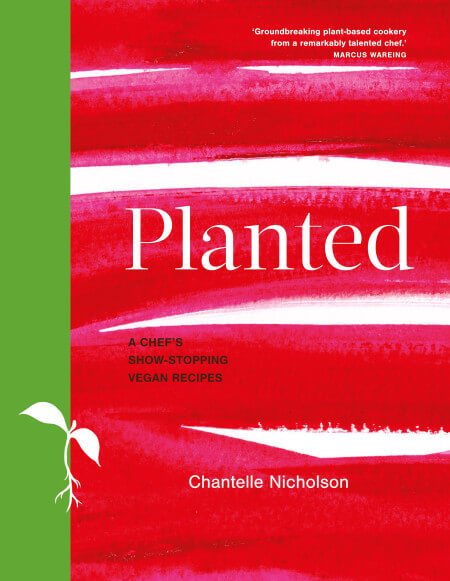



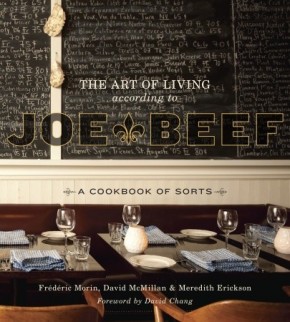

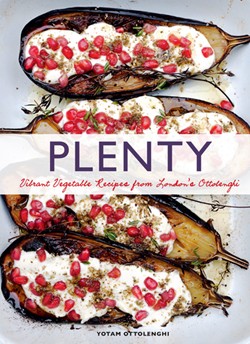
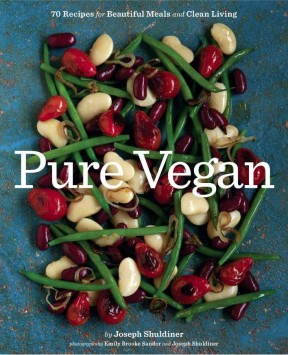
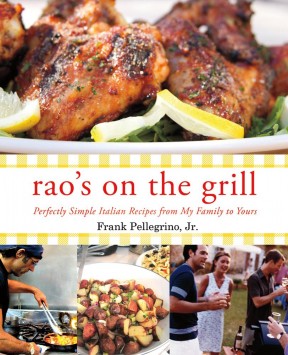
Leave a Reply